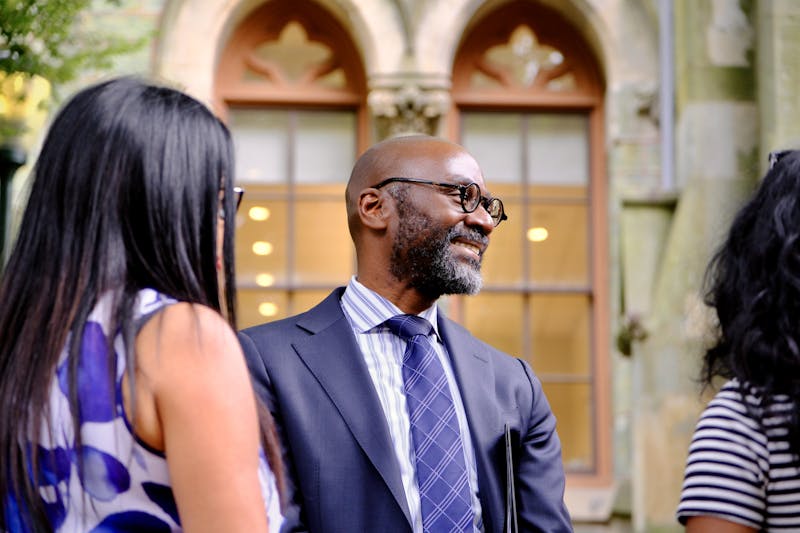
When business economics and public policy professor Olivia Mitchell started writing for a Wall Street Journal blog on pensions and personal finance, her daughter suggested that she also tweet about it.
“It was the time to move into the 21st century,” Mitchell said.
The Wharton Marketing and Communications team recently started to offer informal training to professors like Mitchell who wish to use social media to disseminate research and academic work. During the training, Mitchell learned basic Twitter skills, such as completing setup of a profile and shortening URLs in tweets. “The one thing I am not so comfortable with, just because I am not sure how to do it, is to use the hashtags,” she said. “So I have to get more training in that.”
Her most recent post embedded two hashtags and one URL.
The training also educates professors on how to write more interesting tweets that appeal to the general public. “So it’s not sufficient just to put a title of a paper up. It’s better to say something about it,” Mitchell said. “For faculty we are much more used to talking to traditional academic audience. So this is very much a new audience that we have to try to reach.”
With a limit of 140 characters, Mitchell considered tweets as a way to attract audience’s interest and get them to start thinking about an issue. “You have to assume [that] people who are following you probably understand enough about the issue,” she said. “Short statements will at least pique their interest to think about it.”
Some Penn professors are already big names on Twitter. Legal Studies and Business Ethics professor Kevin Werbach has 21,800 followers on his Twitter account @kwerb.
Management professor Adam Grant, Marketing professor Jonah Berger and Religious Studies professor Anthea Butler also have strong presences on Twitter.
“It’s extremely valuable for professors to have a presence on social media,” Werbach said. “We shouldn’t see ourselves either just talking to Penn alone, or academic communities, but also anyone who is interested in the topics we are working on.”
Professor Werbach tweets about his research in gamification as well as internet and telecommunications policy. He also uses Twitter to interact with his students in his Gamification class on coursera.org, under hashtags like #gamification14 and #gamification12, but does not integrate Twitter as part of his teaching.
“The other thing I love about Twitter is that I go out of my way to find people who have different perspectives. Twitter makes it really easy to do that,” Werbach said.
Instead of building a Twitter account under a personal name, German Department professor Eric Jarosinski edits an account called “Nein” (@NeinQuarterly), a German word meaning “No” in English. He describes his account as “A Compendium of Utopian Negation,” and his critical and witty tweets have attracted 69,600 followers.
The Daily Pennsylvanian is an independent, student-run newspaper. Please consider making a donation to support the coverage that shapes the University. Your generosity ensures a future of strong journalism at Penn.
DonatePlease note All comments are eligible for publication in The Daily Pennsylvanian.







